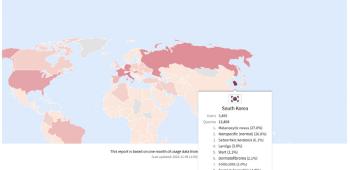Working longer than 52 hours a week, affecting changes in brain structure
May 15, 2025
|
This is the result of a preliminary study by joint researchers from Yonsei University and Chung-Ang University published in the journal Occupational and Environmental Medicine on the 13th (local time).
The researchers analyzed brain magnetic resonance imaging (MRI) by dividing 110 workers in the medical field into a overwork group (32) that works at least 52 hours per week and a group (78) that maintains standard working hours of about 40 hours per week.
As a result of the analysis, overworked people showed significant changes in brain regions related to executive function and emotional regulation. The gray matter capacity in the central frontal region of the brain's frontal lobe, which is involved in complex cognitive functions such as attention, working memory, and language-related processing, increased by an average of 19%. In addition, the volume of 17 areas, including the upper frontal brain, which is responsible for attention, planning, and decision-making, and the brain ciliary lobe, which plays an important role in integrating sensory and motor functions, emotional processing, and self-awareness, has increased.
The researchers said the findings provide new neurobiological evidence linking long working hours to structural changes in the brain. However, it is not possible to determine whether these structural changes are caused by long hours of work or other causes that give individuals a tendency to work longer, he said, adding that more research is needed on various population groups.
Reporter Kim So-hyung compact@sportschosun.com
This article was translated by Naver AI translator.














